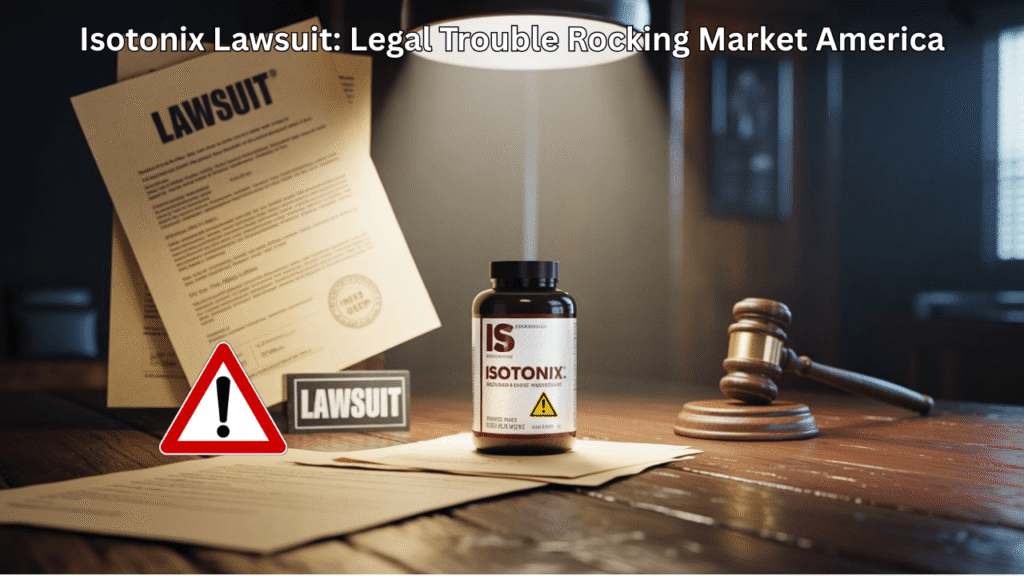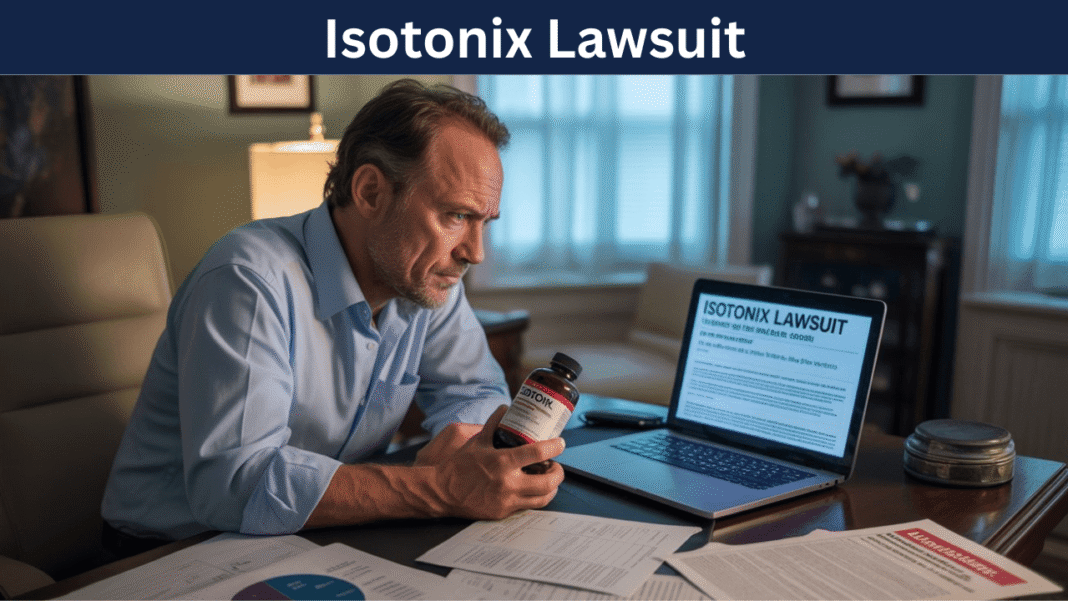If you’ve ever been lured into the glossy world of health supplements or “financial freedom” promises from multi-level marketing giants, you’ve likely heard the name Isotonix. But recently, what was once touted as a nutritional breakthrough is making headlines for all the wrong reasons. Yep, we’re diving into the Isotonix lawsuit, and the growing legal storm brewing around Market America, its parent company.
These lawsuits aren’t just a legal headache—they raise serious questions for consumers, distributors, and the broader wellness industry.
What Isotonix and Market America Really Are
Let’s rewind for a sec. Before lawsuits and courtrooms got involved, Isotonix was widely known as a high-end nutritional supplement brand. Think vitamins, minerals, and wellness products promising better health in a fast-absorbing, powdered format.
And behind Isotonix? That would be Market America, the multi-level marketing machine founded in 1992 by JR Ridinger and his wife Loren. The company pushes everything from skincare to weight-loss drinks—all via a vast network of independent distributors. Think of it like a modern-day door-to-door sales operation, only digital and international.
Inside the Isotonix Lawsuit: What Went Wrong?
The Isotonix lawsuit didn’t appear out of nowhere. Over time, a mountain of concerns started building about the company’s business and marketing practices.
1. Exaggerated Health Claims
One of the most serious allegations in the Isotonix lawsuit is that the company overstated the health benefits of its products. Some supplements were promoted as solutions for chronic conditions, all without the backing of solid scientific evidence.
That’s a problem—especially in a market where people rely on these products for actual health improvement.
2. Lack of Scientific Backing
Critics argue that Isotonix failed to provide third-party clinical studies to support the bold claims on its labels. In the supplement world, that’s a big red flag. Consumers deserve transparency when choosing what goes into their bodies.
3. Misleading Product Descriptions
Discrepancies between what’s on the label and what’s in the bottle? That’s what some consumers claim. The Isotonix lawsuit points to product misrepresentation, with several buyers feeling deceived after investing in products that didn’t match their marketed benefits.
Market America’s Legal Woes: Is It a Pyramid Scheme?
It’s not just the Isotonix lawsuit stirring controversy. Market America itself is facing major legal pushback, with claims that it operates dangerously close to a pyramid scheme.
1. Recruitment Over Product Sales
In traditional MLMs, product sales should be the star of the show. But in Market America’s case, plaintiffs argue that most of the income came from recruiting other people—not selling actual products. That’s where the “pyramid” comparison kicks in.
And let’s be honest—if you’re making more money from signing up people than you are from the stuff you’re selling, that’s not exactly consumer-first business.
2. Class Action Lawsuits
A series of class action lawsuits against Market America claim that the company misled distributors about their earning potential. Many were allegedly sold a dream of financial independence, only to rack up serious debt on marketing materials, product stock, and costly training events.
3. Dubious Earnings Promises
Another chunk of the Market America lawsuit revolves around earnings misrepresentation. Essentially, people were told they could “get rich” quickly and easily. In reality, most never saw a return on their investment, while the few who did were usually those at the top of the pyramid—err, chain.
What It Means for Consumers

So how does the Isotonix lawsuit affect everyday buyers?
Misinformation and Health Risks
When people buy supplements based on exaggerated claims, it’s not just about wasted money—it’s about trust, and in some cases, health risks. Consumers who believed in the benefits of Isotonix without scientific support may have skipped other vital health treatments.
Financial Damage
And if someone got involved with Market America expecting big returns—whether as a customer-turned-distributor or just buying in bulk—they could have suffered significant financial losses. The lawsuits suggest that many people were left holding the bag.
The Fallout for Distributors
Loss of Credibility and Confidence
Distributors who once championed Market America now face reputation damage, both professionally and personally. If they convinced others to join a potentially deceptive system, the blame doesn’t always stop with corporate.
Legal Risk
Even though most distributors are “independent,” those who made false claims or promoted questionable practices may face legal consequences themselves. It’s a grey area—and one that could drag innocent participants into a legal mess.
The Bigger Picture: MLMs Under Scrutiny
The Isotonix lawsuit and the surrounding legal cases are part of a broader crackdown on MLM companies. Government bodies like the Federal Trade Commission (FTC) are increasingly focused on deceptive practices—especially those that border on pyramid schemes.
As regulations tighten, companies are being forced to get more transparent with their earnings claims and product marketing. That’s good news for consumers—but it could spell serious trouble for some business models.
Settlements and the Road Ahead
Some lawsuits end in court, but many settle quietly. In cases like this, settlements can include:
- Refunds to customers and distributors
- Changes in advertising language
- More scientific evidence required for health claims
- Increased transparency in the MLM structure
Whether or not Isotonix or Market America will change their playbook dramatically remains to be seen. But the pressure is mounting.
What’s Next for Isotonix and Market America?
With lawsuits making waves and public trust dipping, both companies have some serious reputation rebuilding to do. The Isotonix lawsuit has drawn a bright red circle around misleading health marketing, while Market America’s lawsuit highlights the murky waters of MLM models.
If you’re a potential customer or distributor, do your homework. Ask:
- Are the product claims backed by science?
- How much of the business model relies on recruitment?
- What are real users and former sellers saying?
The shiny brochure might sell you a dream, but the legal fine print tells the real story.
Final Thoughts: Isotonix Lawsuit Serves as a Wake-Up Call
This isn’t just about one company. The Isotonix lawsuit is a signal flare for anyone buying into the health-and-wealth promises of MLMs. In today’s marketplace, transparency is king, and companies that bend the truth—whether in labs or boardrooms—will be held accountable.
The Isotonix lawsuit is just one example of corporate legal drama unfolding across industries. For a deeper look into medical fraud and federal investigations, read our feature on the Innovasis DOJ Scandal, exposing a $12M kickback scheme that rocked the orthopedic world.
So whether you’re sipping your “fast-absorbing” supplement or attending a sales pitch, make sure you know what’s real and what’s just well-marketed hope.



